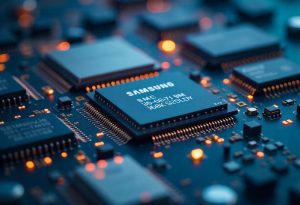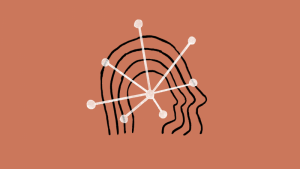Could Microsoft be the Next Mobile Superpower?
The market’s response to Microsoft’s purchase of Skype has been far from welcoming. A sharp drop in Microsoft’s share price was followed last week by public calls for Steve Ballmer’s resignation. While many analysts and investors continue to debate the motivations and financial viability of the recent cash purchase, others are now starting to speculate on the company’s long-term plans for the mobile industry, especially in regards to further acquisitions.
With a price tag of $8.5 billion, Microsoft has taken a huge gamble on Skype’s potential to turn a profit, something it hasn’t done for many years. Yet this gamble is more than just on Skype. Microsoft has spent over a sixth of its cash reserve on a bold attempt to ensure that it holds a stake in the future of the mobile industry and more specifically in mobile communications. Ultimately, this is a future that will be driven by voice and video calls over IP.![]()
However, Microsoft must realise that this alone won’t guarantee its position in the mobile market. As mobile carriers continue to migrate to LTE and 4G technologies, there will be a proliferation of IP-based communication services. Indeed, this is already happening. In a few years, everything will be transported across data networks, including voice. As such, Microsoft is still missing a piece of the mobile puzzle and this has led a growing number of analysts to speculate on a possible purchase of Nokia.
A purchase of this kind would have reverberations throughout the mobile industry and could turn Microsoft into an overnight mobile giant. Although Nokia has struggled for some time to retain its position in an industry now driven by Google, Apple and RIM, it still holds a strong market share and a solid reputation as a hardware manufacturer. This combination may be too tantalising for Microsoft to resist. A purchase of Nokia would catapult Microsoft over its competitors and make it relevant to a whole new audience.
Rewind to 2010 and this relevancy is something Microsoft had hoped to achieve with its Windows Mobile 7 operating system. Unfortunately for the company, this didn’t happen. Even now, the market’s response to Microsoft’s mobile OS is cordial at best. With only a handful of OEM agreements, most notably Samsung and HTC, Microsoft’s share of the mobile OS market has fallen to less than 8%. Of course, this figure will no doubt increase given Microsoft’s strategic alliance with Nokia but such a drop in market share isn’t a strong sign of consumer confidence.
In addition to market reach, what’s also enticing about Nokia is its work in some of the key areas that will further shape the mobile industry, specifically in the field of mobile payments. Although Google and Square have captured many of the recent headlines in this space, Nokia was one of the first companies to develop near field communication (NFC) technology for use in the ‘mobile wallet’. If successful, this technology will see mobile phones replace credit cards as the tool for high-street purchases and this will prove critical to a mobile market desperate to increase ARPU.
However, this is where things become a little complex. Increased ARPU is the Holy Grail of the mobile industry, especially as we transition to a pure data environment. Once LTE and 4G technologies are widely deployed, mobile carriers will need to drastically redevelop their business models to remain financially viable. As revenues from voice calls diminish, mobile carriers face the risk of becoming pure transport players, owners of ‘dumb pipes’. To avoid this, mobile carriers need to find new ways of selling additional services. Some are eschewing this problem by partnering directly with service providers, consider Sprint’s ![]() relationship with Google, others are doing so by developing their own applications.
relationship with Google, others are doing so by developing their own applications.
Yet most mobile carriers understand that developing in-house applications to rival those of Google, Apple, etc, isn’t easy. One need only consider the mobile payment alliance called Isis to see this in action. Here, AT&T, T-Mobile and Verizon have joined forces to develop their own mobile wallet application built on NFC technology. However, progress has been painfully slow and it’s unlikely that Isis will make any significant inroads. The key question here is what happens if, or more likely when, companies such as Apple make a play. Apple already has a huge database of customer credit card details on iPhones via iTunes and it’s only a small leap to add NFC technology to this equation. I can only imagine the potential advertising revenue here.
Given the delicate nature of the mobile ecosystem, Microsoft needs to tread carefully. The purchase of Skype has already raised discomfort levels among mobile carriers and a play for Nokia would likely raise those levels higher. Yet Microsoft also understands that there are inherent risks. The company has never been a strong mobile player. The launch of Windows Phone 7 was far from a success and its recent Mango announcement was met with a similar response. Whether Microsoft buys Nokia or not, the Finnish phone manufacturer is now a strategic partner, more so than either Samsung or HTC. As such, Nokia needs to start shipping new handsets with Mango as soon as possible, by the holiday season at the latest. If not, both companies will jeopardise any opportunity of long-term success in the smartphone market.
The key question is what happens next? How does Microsoft expand its presence in the mobile market? How does it successfully leverage its purchase of Skype and drive profitability? If purchased, could it successfully integrate Nokia? These are big questions and ones that I’d be interested to hear your thoughts on.
[Cross-posted at High Tech Forum]
A message from John Furrier, co-founder of SiliconANGLE:
Your vote of support is important to us and it helps us keep the content FREE.
One click below supports our mission to provide free, deep, and relevant content.
Join our community on YouTube
Join the community that includes more than 15,000 #CubeAlumni experts, including Amazon.com CEO Andy Jassy, Dell Technologies founder and CEO Michael Dell, Intel CEO Pat Gelsinger, and many more luminaries and experts.
THANK YOU













